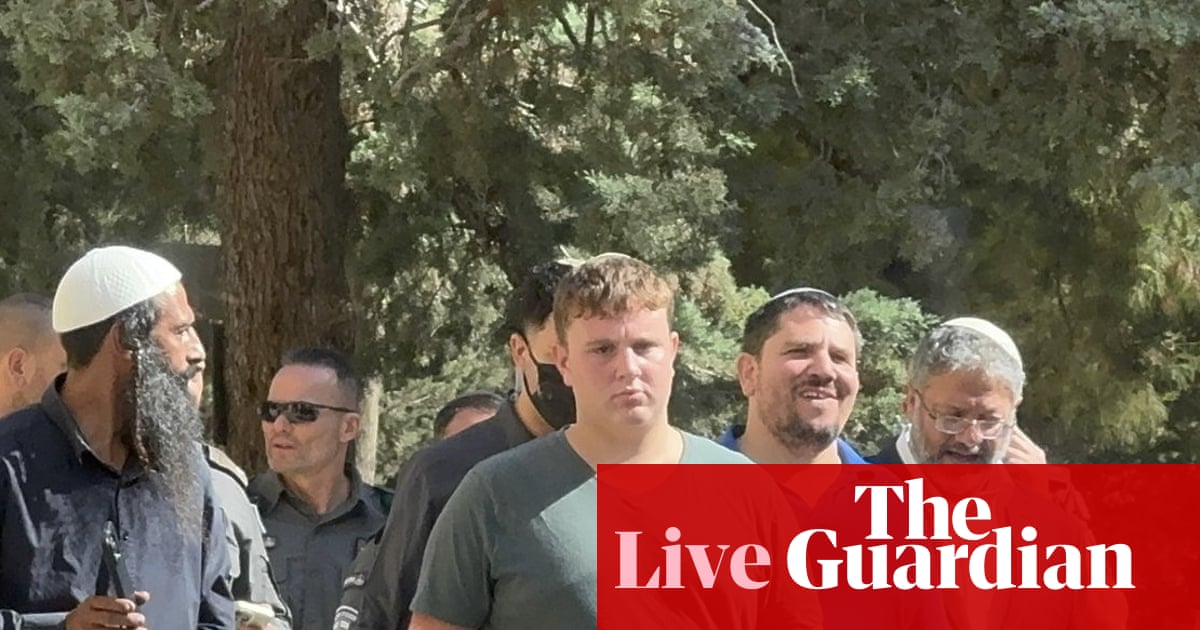Israeli Minister's Prayer at Jerusalem Holy Site Sparks Controversy
Far-right Israeli Minister Itamar Ben Gvir prayed at a sensitive Jerusalem holy site, breaching a long-standing status quo agreement, drawing condemnation and angering Muslim authorities.
Subscribe to unlock this story
We really don't like cutting you off, but you've reached your monthly limit. At just $5/month, subscriptions are how we keep this project going. Start your free 7-day trial today!
Get StartedHave an account? Sign in
Overview
- Far-right Israeli National Security Minister Itamar Ben Gvir breached a decades-old "status quo" agreement by leading worshippers in prayer at the sensitive Al-Aqsa Mosque compound in Jerusalem.
- This action angered Muslim authorities like the Waqf and drew strong condemnation from Hamas, who called it a grave escalation and aggression against Palestinians.
- The Israeli Prime Minister's office confirmed no change in policy regarding the holy site's status quo, despite the minister's controversial visit and breach of agreement.
- Under the delicate arrangement, Jordan holds custodianship of the site, while Israel controls security, allowing Jews to visit but not pray at the al-Aqsa compound.
- Minister Ben Gvir was accompanied by police officers during his visit, which further fueled anger and controversy over the violation of the established agreement.
Report issue

Read both sides in 5 minutes each day
Analysis
Center-leaning sources frame this story as a provocative violation of a sensitive religious status quo. They emphasize the widespread condemnation of the Israeli minister's actions, using strong descriptive language and highlighting expert opinions that underscore the controversial and potentially illegal nature of his broader political stances.
Articles (3)
Center (1)
FAQ
The status quo agreement at the Al-Aqsa Mosque compound dates back to a 1967 oral agreement between Israeli Minister Moshe Dayan and the Muslim Waqf, which recognized Muslim administration of the site and allowed Jews to visit but not pray, with Israel controlling security. This arrangement was part of the broader 1994 Israel-Jordan peace treaty.
The main principles include Muslim Waqf managing the site internally, Israeli security forces maintaining public order and security, only Muslims allowed to pray while non-Muslims may visit without praying, and specific gates designated for Muslim and non-Muslim entry.
The status quo arrangement serves as an anchor of stability by preventing religious clashes over the sensitive holy site, maintaining historic and religious sensitivities, and preserving peace between Muslim authorities and Israeli security control.
Muslim authorities like the Waqf and groups such as Hamas condemned the prayer as a violation of the long-standing status quo, calling it a grave escalation and aggression against Palestinians, which further inflamed tensions.
History
- This story does not have any previous versions.



